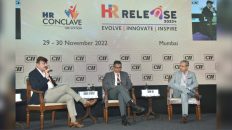The Madras High Court has recently held that the aggrieved person cannot file claim petitions both under the Motor Vehicles Act as well as the Workmen’s Compensation Act in respect of the very same accident. The court also held that previous decisions of various High Courts in this regard is no longer good law.
The Madurai bench of Justice Rmt. Teeka Raman was considering appeals filed for enhancement of award and against the award passed by the Deputy Commissioner of Labour, Madurai along with another appeal against the dismissal of MCOP by the Additional District Judge.
In the first appeal, while challenging the award, the claim petitioner contented that Deputy Commissioner erred in calculating the compensation and should have fixed the salary as Rs. 5,835/- which was the salary of the claim petitioner’s father, at the time of his death. The Deputy Commissioner however fixed the salary as Rs. 2000 without any rationale.
The Additional Government Pleader contented that on the date of the accident according to the existing provisions under Section 4(1) explanation, the maximum ceiling for monthly wage is Rs. 40000/- and for the purpose of calculation 50% has to be taken as per provision under Section 4(1)(a).
Section 4(1)(a) of The Workmen’ S Compensation Act, 1923:
” (1) Subject to the provisions of this Act, the amount of compensation shall be as follows, namely:–
(a) where death results an amount equal to forty percent from the injury of the monthly wages of the deceased workman multiplied by the relevant factor; or an amount of twenty thousand rupees, whichever is more;…
Explanation.– Any payment or allowance which the workman has received from the employer towards his medical treatment shall not be deemed to be a payment or allowance received by him by way of compensation within the meaning of clause (a) of the proviso.”
Initially, the ceiling limit of salary was fixed at Rs 2,000 and by way of amendment on 08.01.2000 this amount was enhanced to Rs. 4000/-. By way of subsequent amendment on 18.01.2010 this ceiling limit has been deleted.
The court held that considering the date of accident the ceiling limit of salary of Rs. 4000/- alone has to be fixed and in view of the specific provision under Section 4(1)(a) of Workmen Compensation Act, 50% of the amount of monthly wages of the deceased could be multiplied by the relevant factor and hence, the calculation done by the Deputy Commissioner, is just and correct.
The petitioners had also contented that the Deputy Commissioner has granted interest from the date of the petition whereas the same should have been calculated from the date of the accident. The court found merit in the argument and ordered accordingly. The court further stated that even though the petition for compensation was filed roughly 10 years after the date of the accident, the statutory provisions in respect of beneficial legislation has to be gone to the benefit of the employee.
The petitioners had also appealed against the order of the Additional District Judge dismissing the MCOP holding that the accident occurred in the course of the employment and the deceased was employed in the Government Department and he is a workman and hence, opportunity was granted to work out his remedy under the Workmen’s Compensation Act.
To this, the insurance company had stated that the claim petitioners cannot file a claim petition under Motor Vehicles Act and another claim petition under Workmen’s Compensation Act.
The court drew attention to the decision of this court in Divisional Manager, New India Assurance Co.Ltd., v. Thiru.Astalingam and ors CMA (MD) 443 of 2012 where the court that the claim petition under both the provisions of the Act are maintainable based upon the decision of Rajasthan High Court in New IndiaAssurance Co., Ltd., vs. Bidami (2009).
The Insurance company however informed that court that it had preferred a Special Leave Petition against the above decision and the Supreme Court had set aside the above order by an order dated 17.04.2014. While setting aside the order, the supreme court had observed the following-
“The “doctrine of election” is a branch of “rule of estoppel”, in terms whereof a person may be precluded by his actions or conduct or silence when it is his duty to speak, from asserting a right which he otherwise would have had. The doctrine of election postulates that when two remedies are available for the same relief, the aggrieved party has the option to elect either of them but not both. Although there are certain exceptions to the same rule but the same has no application in the instant case.”
The court, thus held that the decision of this court in Astalingam’s case is per incuriam. The court also found that the decision of the Additional District Judge giving liberty to the claim petitioner to proceed under the Workmen’s Compensation Act was maintainable.
Case Title: R. Geethabanu v. Government of Tamil Nadu and Yamuna Devi(Died) v. Abdul Raheem and Ors
Case No: CMA (MD) Nos. 1448 of 2016 and 166 of 2017
Citation: 2022 LiveLaw (Mad) 145
























Add comment